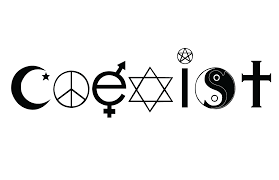In the past two years, legislation and Supreme Court rulings have been made supposedly in the name of religious freedom. Hobby Lobby was freed from the contraceptive mandate of the Affordable Care Act because its owners have religious objections to providing contraceptive coverage. The state of Indiana just passed a law basically allowing discrimination against gays based on religious objections.
To me these actions signify not religious freedom, but rather the encroachment of right wing Evangelical Christianity into government. Far from separating church and state, these laws show a clear bias towards the religious beliefs of one segment of the population, albeit a powerful one.
And this seems to suit religious Christians just fine. I have heard many of them decry the secularization of society, bemoan the lack of prayer in public schools, and state outright that the separation between church and state is wrong. This is the antithesis of what the First Amendment is meant to protect.
For hundreds of years, the governments of Europe functioned in tandem with the Church. England still has an official state religion. Yet religious belief in Europe languishes. The churches go empty, and few people in these nations espouse fervent religious beliefs.
In other parts of the world, we are seeing the damage that a state run by extremist sharia law, also based in religion, can do. Women in these countries have few rights, and apostasy is often met with violence or death.
Here in America, religions flourish. Outside perhaps Latin America and the Philippines, the United States is one of the most religious nations on Earth. I would argue that it is precisely because of our strict separation between church and state that we are able to enjoy such religious freedom and practice our faith unhampered by government interference.
People say they want prayer in public places, but whose prayer? Baptists’? Catholics’? Jews’? Muslims’? If you have read my posts in the past, you know I am a pretty faithful Catholic. Religious freedom to me means being allowed to worship in a Catholic Church and live a life consistent with Catholic beliefs. It doesn’t mean I need you to live that way.
It also means that I try to see the big picture of Christian teaching, which centers on a humble man named Jesus, who exhorts us to feed the poor, clothe the naked, and visit prisoners. He dined with the biggest sinners in his day. He touched lepers. He told us to love our neighbors. He did not tell us to reject gays or refuse to allow people to live their own lives.
Indiana is experiencing a strong backlash since passing the anti-gay bill. This is heartening to me. In the past, the state would not even have felt the need to pass such a law since discrimination against the LGBT community was rampant. It is a measure of our tolerance (NOT a dirty word, by the way) as Americans that we have made such progress.
I have a prayer for our society, and it is that we learn to embrace our diversity, respect each other as human beings, and continue to be the bastion of freedom that has made America one of the best countries in the world.

Well done Mary. I share your wish for America and am hopeful that the backlash will result in necessary and thoughtful conversation.
LikeLiked by 2 people
Isn’t it ironic that the people who believe they know Christianity best are actually the most ignorant about it? This un-Christian law is only worthy of the KKK. Great post again, Mary!
LikeLiked by 2 people
I really appreciate this article Mary. I’d like to emphasize that there are so many Christians out there who feel the same way you (and I) do – yet the right wing conservatives give Christians a “bad” image. Their highly vocalized views are definitely UNChrist-like. Thanks for posting this!
xo
LikeLiked by 1 person